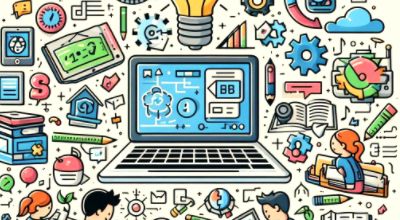Digital Literacy in Education
Digital Literacy in Education refers to the ability of students and educators to use digital technologies. Tools and resources effectively to find, evaluate, create, and communicate information. It encompasses a wide range of skills and competencies. These are essential for navigating the digital world and participating in the modern information age. Digital literacy is a critical component of 21st-century education. Because it empowers individuals to be informed, critical, and responsible users of technology.
Key aspects of digital literacy in education include:
- Basic Digital Skills: This includes fundamental skills such as using a computer, operating system, and common software applications. It also involves understanding hardware components and basic troubleshooting.
- Information Literacy: The ability to search for information online effectively and evaluate the credibility and reliability of sources. Citing digital resources properly is crucial in the digital age.
- Media Literacy: Students need to be able to critically analyze and interpret various forms of digital media, including text, images, audio, and video. This includes understanding how media can be used to convey information, persuade, or manipulate.
- Cybersecurity Awareness: Understanding the basics of online safety, including how to protect personal information and recognize phishing attempts. And using strong passwords is essential in a digital environment.
- Digital Communication: Proficiency in using email, social media, and other digital communication tools for both personal and professional purposes. This includes understanding netiquette (online etiquette).
Read More…
- Digital Content Creation: The ability to create digital content such as documents, presentations, websites, and multimedia projects using various software tools and platforms.
- Coding and Programming: Depending on the educational level and goals, students may also be introduced to coding and programming concepts. These skills are increasingly relevant in today’s technology-driven world.
- Critical Thinking and Problem-Solving: Digital literacy encourages students to think critically and solve problems using digital tools. It involves understanding algorithms, data analysis, and computational thinking.
- Ethical and Responsible Use: Teaching students about digital ethics, copyright, plagiarism, and the responsible use of technology is important to ensure they use digital resources ethically and legally.
- Adaptability and Lifelong Learning: Given the rapid pace of technological change, digital literacy also involves the ability to adapt to new tools. And technologies and a commitment to lifelong learning in the digital domain.
Note:
Incorporating digital literacy into education helps students prepare for the digital workforce and enables them to be responsible and informed citizens in an increasingly connected world. It is a critical skill set that goes hand-in-hand with traditional literacy and numeracy in modern education.
